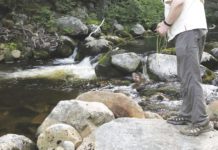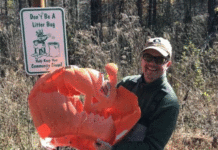I have spent nearly 20 years guiding anglers on Montana rivers and streams in Southwest Montana. After 10 years as a guide, I became an outfitter in 2015 and have been operating my small business ever since. Montana, and its waters, are treasures.
My livelihood, like other fly-fishing guides, is dependent on clean, cold, and plentiful water in our rivers to protect habitat. It’s also dependent on the access that Montana’s prized stream access law ensures that distinguishes our state from other states.
I am concerned by a proposed ballot measure, I-191, that could dramatically hurt the outdoor recreation industry’s economy, access to our rivers for all recreationists, and current collaborative river restoration efforts being undertaken by those who live and recreate here. I-191 would designate over 100 miles of the Gallatin and Madison rivers, plus their tributaries, as Outstanding Resource Waters, a designation only applied in national parks and wilderness areas.
There’s already a process in place through the Department of Environmental Quality (DEQ) to apply this type of designation to a waterway. The proponents of I-191, who have consistently stated that their intent is to stop all development in Big Sky, have pursued that route but been denied both administratively and in the courts.
Current and past efforts show a storied history of Montanans working collaboratively with state, local, and federal partners to protect our waterways and this proposed ballot measure would circumvent these protections. By going around the DEQ, this ballot measure wouldn’t even require the proponents to produce an Environmental Impact Statement, a requirement that would otherwise be needed.
Worse, state and local conservation groups who are working through years of planning and execution on river restoration projects will be prevented from doing so and current efforts at native trout restoration in Gallatin and Madison River tributaries may be in peril under this ballot initiative.
Further, the proposed ballot measure language even states that “temporary” water quality changes from point source pollution wouldn’t be allowed. The uncertainty created by the word “temporary” could lead to reduced angler access to the river. Does this mean that regular maintenance like the repair of a vault latrine at your favorite fishing access point would force that access point to be abandoned because it produces a “temporary” change in water quality? One can only assume these questions end up in court.
Montana’s outdoor recreation economy generates over $7.1 billion to the economy of Montana. These expenditures allow small business owners like me to thrive, and this ballot initiative puts myself and many other Montana small businesses in jeopardy. There are simply too many unanswered questions and unintended consequences caused by this proposed ballot measure. Read the fine print before signing.
Scott Vollmer is a fishing guide. He lives in Bozeman.
Credit: Source link































